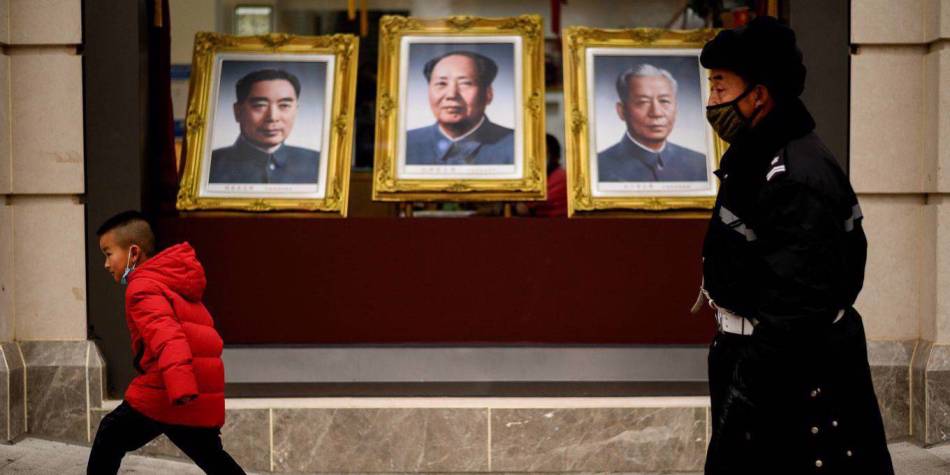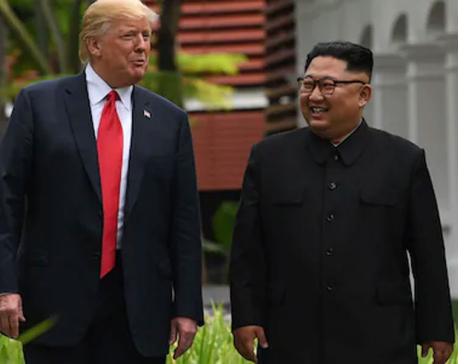
OR
How to cooperate with China
Published On: February 26, 2021 08:00 AM NPT By: Andrew Sheng and Xiao Geng

When the West is ready to cooperate—without attempting to force China to cross red lines such as regime change—devising a new global social contract will be essential.
HONG KONG – China is a tough country to comprehend—even for most Chinese. But much of what makes China enigmatic – its long history, vast and varied territory, huge and diverse population, complex politics, and massive, dynamic economy—also makes understanding the country important. For better or worse, what happens in China affects everyone.
Western observers tend to struggle the most in deciphering China. As Dutch sinologist Hans Kuijper put it, “There is something fundamentally amiss in Western Sinology: ‘China experts’ either pretend to be knowledgeable about everything related to China, in which case they cannot be taken seriously, or—eventually—admit not to be scientific all-rounders with respect to the country, in which case they cannot be called ‘China experts.’”
There are obvious reasons why Westerners have such a hard time understanding China. For starters, China has a very long history as a continental agricultural civilization, with a strong central government and unified political, social, and economic systems.
This differs sharply from the geographic fragmentation and political competition historically seen in the West—the birthplace of the modern nation-state and market capitalism. This historical divergence helps to explain why today’s China achieves some objectives, such as large-scale infrastructure construction, much more efficiently than the West, but is far slower in achieving others, such as building democracy.
But there is not a clear-cut division between Chinese central planning and Western democratic capitalism. For example, communist China can be more “capitalist,” in terms of raw market behavior, than Western countries. In fact, two-thirds of its “state-run” economy is now privately operated. Yet it did not achieve this with Western-style “privatization.”
China challenges traditional Western frameworks, with a policymaking approach that is long-term, pragmatic, and contextual. Influenced by ancient Chinese philosophy, policymakers engage in complex systems thinking. They know that systems are never static, and thus cannot be adequately governed by rigid rules and procedures. To enable continuous reform and adaptive policymaking—essential to the stability, functioning, and development of complex systems—flexible relational principles are often far more useful.
Technology has aided in this process of adaptation, by helping to overcome coordination and communication problems. The WeChat app, for example, links complex networks and organizations, thereby facilitating just-in-time delivery of huge and complex projects.
Another notable characteristic of Chinese policymaking is the tendency to emphasize collective survival over individual interests. Unlike the United States, for example, China has extensive experience with systemic decay and collapse. Its leaders are well aware of the instability this can cause—and how difficult it is to rebuild. They are thus committed to preserving, developing, and fortifying existing systems, even if it means imposing short-term costs on individuals.
But here, too, we run the risk of reductionist thinking. Ostensibly, China’s approach can be compared to those of other countries using a two-by-two matrix, comprising MeMe and WeWe mindsets. The US—especially under former President Donald Trump—has long epitomized the MeMe approach, in which the collective good takes a backseat to individual rights and freedoms.
But, if its COVID-19 strategy is any indication, the Biden administration may be set to push the US toward a MeWe approach—still emphasizing individual rights, but with an eye for the collective good—though it will undoubtedly face stiff resistance. Europe’s social democracies are the poster child for this category.
Asian countries, for their part, mostly fall into the WeMe category, placing the collective first, but still stressing individual rights. China’s emphasis on collective welfare, however, is strong enough to place the country—along with Cuba—in the WeWe camp. Nonetheless, demands for individual rights are growing louder in both countries.
Clearly, deepening international integration has enabled external forces to influence Chinese thinking, just as China increasingly shapes the rest of the world. Unfortunately, such dynamic feedback loops are often treated as a zero-sum game, with countries not only clinging to familiar approaches and perspectives, but also trying to impose their ways on others.
With his plan to build a concert of democracies to contain China as part of an “extreme competition” between the two powers, that is precisely what Biden is poised to do. This will leave everyone worse off. After all, as the COVID-19 pandemic has highlighted, global cooperation is vital to tackle transnational challenges, including terrorism, migration, inequality, and climate change. If countries pick fights with one another, those challenges will only grow.
For now, China is getting its own house in order, such as by implementing its “dual-circulation strategy,” which aims to boost China’s supply-chain and market resiliency through increased reliance on “internal circulation.” But that strategy does not preclude cooperation. On the contrary, China welcomes greater cooperation on shared challenges, as long as that doesn’t mean compromising on its fundamental beliefs or systems.
When the West is ready to cooperate—without attempting to force China to cross red lines such as regime change—devising a new global social contract will be essential. This means, for starters, reforming the multilateral institutions, such as the United Nations, the International Monetary Fund, the World Bank, the World Trade Organization, and the World Health Organization.
By involving all stakeholders, this process can foster the development of a shared narrative, with each country pinpointing its role within the global collective. In such a scenario, the US and China would do their part to protect the global commons, rather than competing for global dominance.
Andrew Sheng is Distinguished Fellow at the Asia Global Institute at the University of Hong Kong and a member of the UNEP Advisory Council on Sustainable Finance. Xiao Geng, Chairman of the Hong Kong Institution for International Finance, is a professor and Director of the Research Institute of Maritime Silk-Road at Peking University HSBC Business School.
Copyright: Project Syndicate, 2021.
www.project-syndicate.org
You May Like This

U.S. actors accuse Oscar body of intimidation over awards presenters
The largest actors union in the United States on Monday accused the organizers of the Oscars of trying to intimidate... Read More...

‘Scapegoat framed by US & Mexico’: El Chapo’s lawyer claims real drug lord walks free & bribes govts
BROOKLYN, Nov 14: Drug lord Joaquin ‘El Chapo’ Guzman had been framed by corrupt US and Mexican officials who let... Read More...

U.S. ready to resume North Korea talks, seeks denuclearisation by 2021
WASHINGTON/SEOUL, Sept 20: The United States said it was ready to resume talks with North Korea after Pyongyang pledged on... Read More...





Just In
- NRB introduces cautiously flexible measures to address ongoing slowdown in various economic sectors
- Forced Covid-19 cremations: is it too late for redemption?
- NRB to provide collateral-free loans to foreign employment seekers
- NEB to publish Grade 12 results next week
- Body handover begins; Relatives remain dissatisfied with insurance, compensation amount
- NC defers its plan to join Koshi govt
- NRB to review microfinance loan interest rate
- 134 dead in floods and landslides since onset of monsoon this year













Leave A Comment